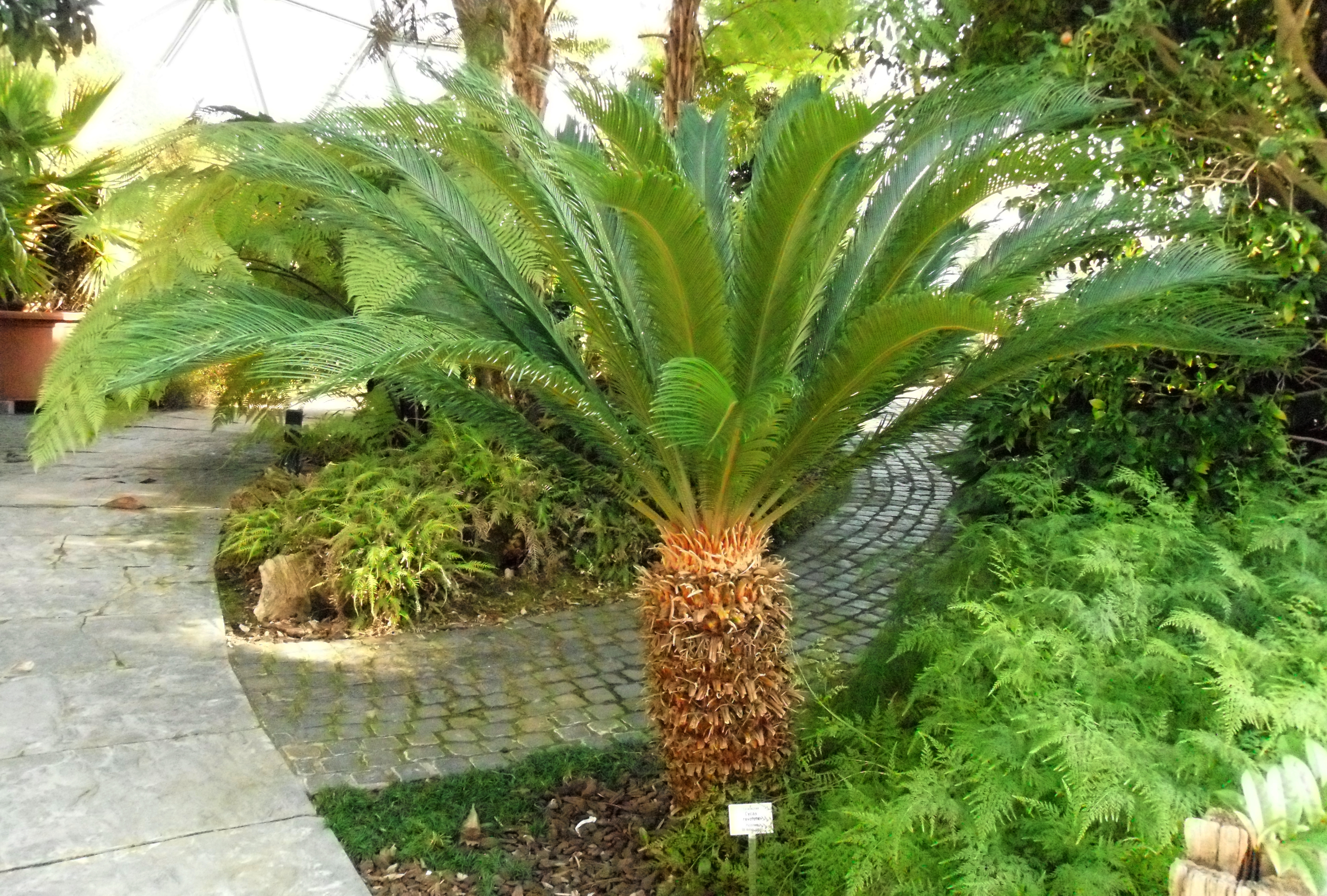Cycas is one of the most beautiful and most expensive plants for large containers and grows very slowly. It originates from Southeast Asia and Japan. Although often placed in the group of palm trees, it has nothing to do with it – he belongs in the Cycas family.
The cycas existed millions of years before the flower plants. At a certain age, in the middle of the thick bundles of overflows, golden-yellow hairy sporophils (modified sheets) appear.
The thick short trunk is formed only in the older plants. Cycas revoluta is one of the widest flower cycases, grown in open ground, warm temperate and subtropical regions or under glass in cold areas. In stores, young plants are usually sold, some of them also as bonsai.
Place to grow
Cycas plants need partial shadow or a complete shadowy spot that is protected from rain. It can be freely grown on the terrace or yard in the warmer months, but it needs strong light if grown indoors.
Care for Cycas revoluta
It grows best in optimal soil, mixed with sand. Good drainage is necessary because there is a risk of rotting. Water retention should not be allowed. Fertilize it in the warm months at reduced doses. You can add manure to the soil also.
With minimal care, these rugged plants can last a lifetime. Slow-growing and long-lived, your plant may not bloom (produce a cone) in the first 15 years of its life or even ever at all.
Pruning
You’ll want to trim off yellow leaves as described above. If your plant produces a cone, you will eventually want to remove it as it begins to break apart.
Do this carefully and avoid damaging the growing point underneath it.
Care over the winter
The minimum temperatures under which they over-winter are 12-15°C, and in the warmer winter days it is nice to expose them to some fresh air. You should water occasionally. Young plants are transplanted in the spring, every two years. With the increase in age, the transplant period increases also. In the summer there is a risk of aphids, so it’s a good idea to check the plant regularly.
Propagation
Cycas plant is propagated by seed, but it is quite difficult. It requires a fairly high and constant soil temperature. Maybe the best idea, when it comes to this plant is to buy a young, but established plant from a nursery.
Gardeners’ advice
This is an extremely poisonous plant for both humans and animals. Pets are at special risk. Clinical symptoms develop within 12 hours and may include vomiting, diarrhea, weakness, cramps, and even hepatic failure. All parts of the plant are toxic, however the highest amount of poison is located in the seeds.

